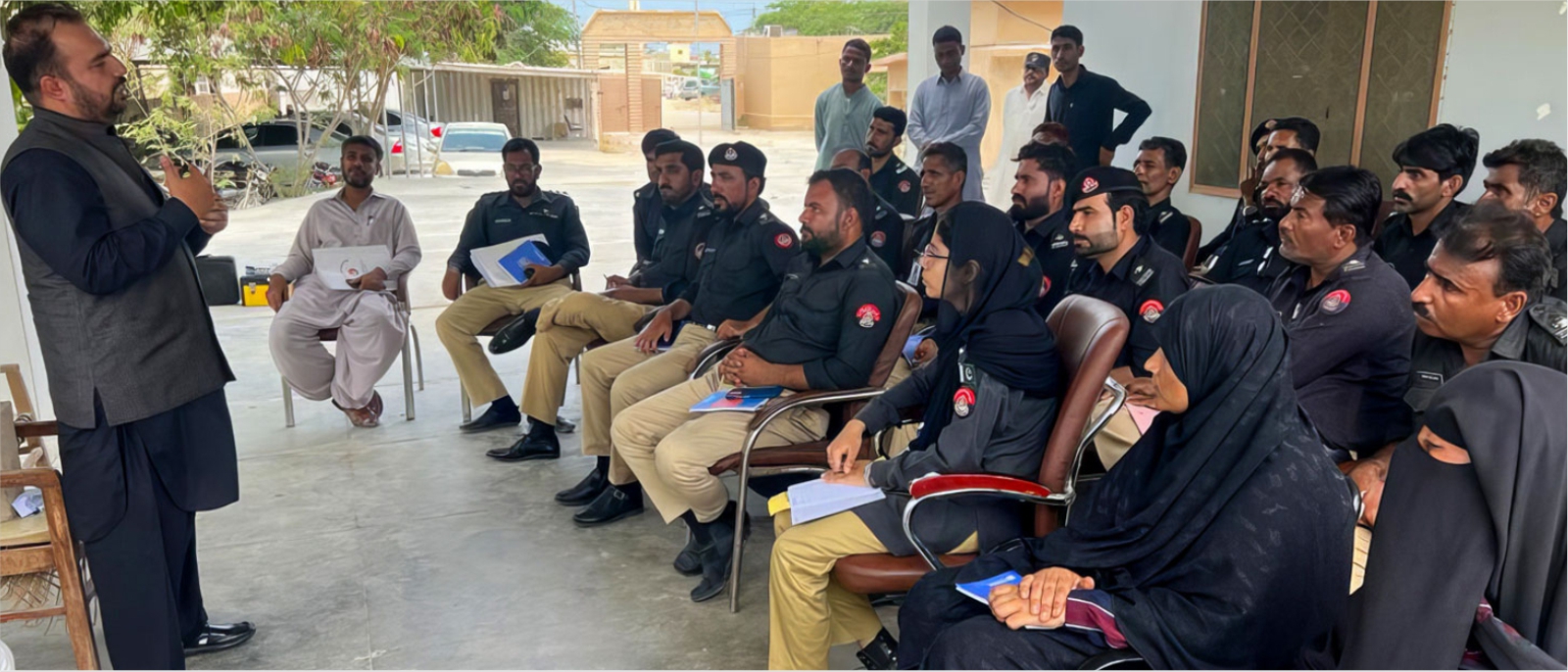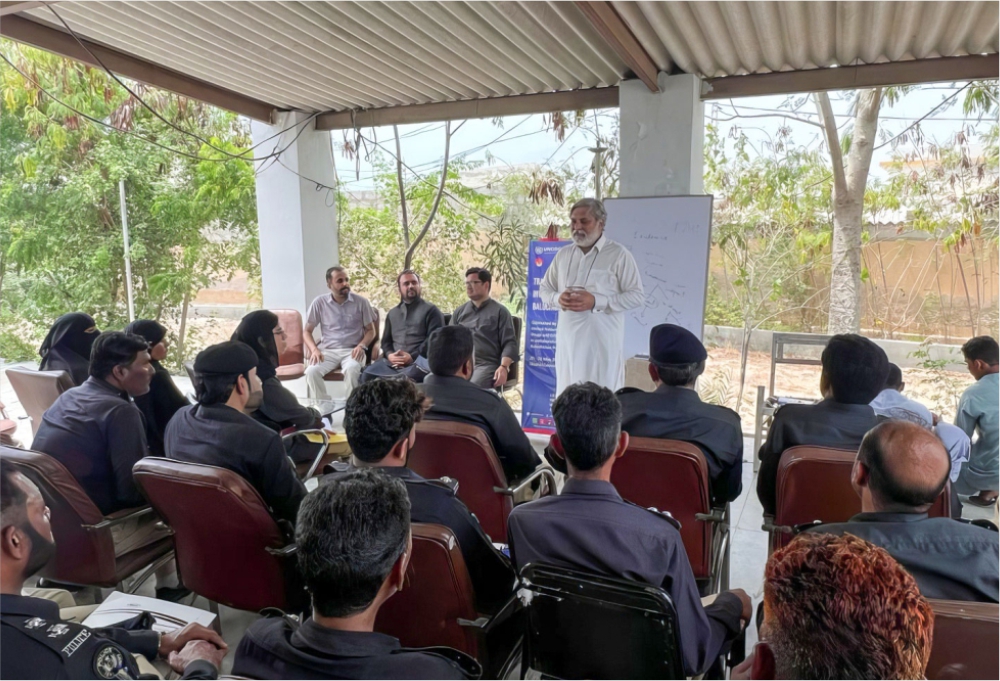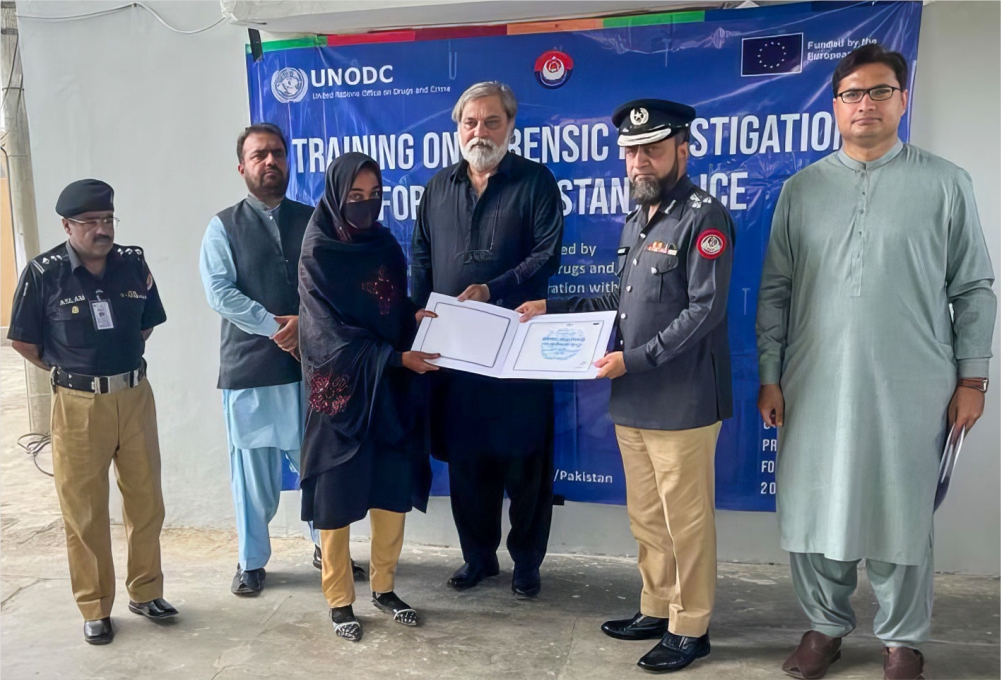
05 June 2023, Gwadar - As the nature of modern day crimes becomes more complicated, forensic science is assuming an increasingly important and dynamic role for criminal investigation. In addition to helping the victim, a successful forensic inquiry has the potential to overturn an incorrect conviction.
UNODC has been proactively working with the criminal justice chain of institutions in Balochistan under the EU-funded ‘Deliver Justice’ Project to enhance the capacity and competence of the rule of law institutions. Within the criminal justice chain, the frontline police investigation officers are the primary agents who receive the initial complaint, reach at the crime scene for first response, and serve as a liaison between the collection and the safe delivery of evidence to the forensic lab or the medicolegal doctors for forensics investigation. While sophisticated forensic technology is there, it can only be effective if the evidence from the crime scene is safely collected and safeguarded for the forensic analysis in order to present a strong and accurate case before the court of law. In Pakistan, unfortunately, despite years of efforts the first responders are not holistically equipped with skills and knowledge to fully optimize on the potential of forensic science.


With this background, under the EU-funded project, a three day training on Forensic Investigation for Balochistan Police was organized by UNODC in Gwadar from 29-31 May, 2023. The aim was to equip front-line investigation officers, including women on how to address real-time crime scene issues through practical demonstration in the collection and preservation of forensic evidence, parcel preparation for forensic lab analysis and post-scene evaluation. A total of 26 participants, including three females from Makran Range participated in the training.
The training modules were conscientiously designed and delivered with respect to the ground realities and challenges faced by the investigation officers. As part of experience sharing, Fiza Illahi, ASI from Balochistan Police in Gwadar mentioned, “I particularly liked the module on chain of custody for systematically tracking evidence through collection, protection, and analysis, which is a key to strengthen an investigation process.”
The ultimate goal of the training was to provide hands-on learning to the investigation officers in the collection of evidence to avoid lapses due to lack of skills or know-how. While appreciating the interest from participants at the distribution ceremony of certificates, DIG. Masroor Alam Kolachi from Mekran Range, acknowledged the efforts of UNODC and underscored the importance of forensic science to uplift the quality of investigation. Syed Mohd. Rahim, ASI and Incharge Crime Scene Unit from Balochistan Police, Gwadar, noted with affirmation, “The 3 day training provided valuable knowledge in forensic science. It will immensely help in making our investigations more robust and accurate.”
The training concluded successfully with unanimous approval from the participants for regular exposure to such dynamic sessions that combine theory and practice to refresh and upgrade investigation skills for accurate forensic analysis and fair delivery of trials.